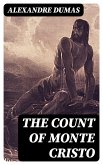In "How The Redoubt Was Taken," Prosper Mérimée masterfully weaves a tale of military strategy and human emotion against the backdrop of wartime conflict. Set during the tumultuous years of the 19th century, the novella combines vivid descriptive prose with sharp dialogues to render a gripping narrative of a siege. Mérimée's literary style exhibits a realistic perspective on heroism and duty, capturing the complexities of the human psyche involved in war. The story not only immerses readers in the tactical intricacies of the assault but also probes deeper themes of sacrifice and camaraderie amidst chaos. Prosper Mérimée was a pivotal figure in French literature, renowned for his succinct narratives and interest in historical themes. His engagement with historical events, combined with his experiences as a government official and his interactions with various cultures, informed his storytelling. This background allowed Mérimée to craft a narrative that is not just a chronicle of military events but also a contemplation on the tenacity of the human spirit in the face of adversity. Readers seeking an incisive exploration of the moral dilemmas of combat and the intricacies of conflict will find "How The Redoubt Was Taken" a fascinating addition to their literary repertoire. The work will resonate with those interested in historical fiction, military history, and psychological narratives, showcasing Mérimée's hallmark ability to fuse history with intricate character studies.
Dieser Download kann aus rechtlichen Gründen nur mit Rechnungsadresse in A, B, BG, CY, CZ, D, DK, EW, E, FIN, F, GR, H, IRL, I, LT, L, LR, M, NL, PL, P, R, S, SLO, SK ausgeliefert werden.
Hinweis: Dieser Artikel kann nur an eine deutsche Lieferadresse ausgeliefert werden.









